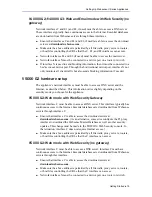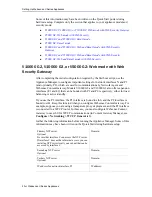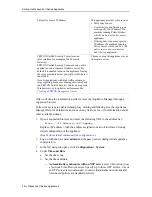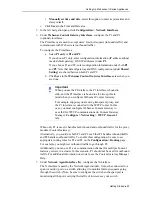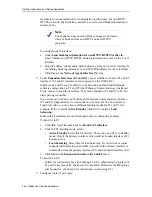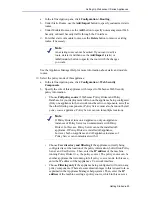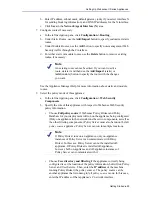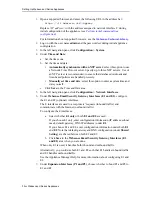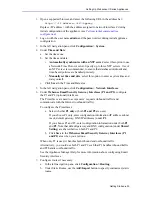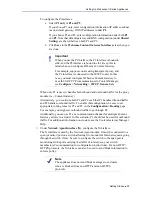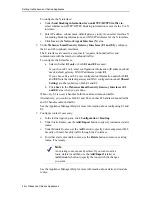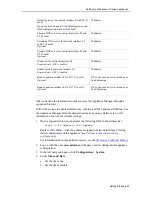
Getting Started
29
Setting Up Websense V-Series Appliances
b.
Enter IP address, subnet mask, default gateway (only if you select interface N
for sending blocking information), and DNS IP addresses for the N interface.
c.
Click
Save
in the
Network Agent Interface (N)
area.
7.
Configure routes if necessary:
a.
In the left navigation pane, click
Configuration > Routing
.
b.
Under Static Routes, use the
Add/Import
button to specify customized, static
routes.
c.
Under Module Routes, use the
Add
button to specify non-management Web
Security traffic through the C interface.
d.
For either static or module routes, use the
Delete
button to remove existing
routes, if necessary.
See the Appliance Manager Help for more information about static and module
routes.
8.
Select the policy mode of this appliance:
a.
In the left navigation pane, click
Configuration > Web Security
Components
.
b.
Specify the role of this appliance with respect to Websense Web Security
policy information.
•
Choose
Full policy source
if Websense Policy Broker and Policy
Database for your deployment will run on the appliance being configured.
(Only one appliance in the network runs these two components, as well as
the other filtering components.) Policy Server must also be run on the
full
policy source
appliance; Policy Server can run in multiple locations.
•
Choose
User directory and filtering
if the appliance currently being
configured is
not
the location of the policy information, but will run Policy
Server and User Service. Then, enter the
IP address
of the machine
running Policy Broker (the policy source). The policy source can be
another appliance that is running in
full policy source
mode. In this case,
enter the IP address of that appliance’s C network interface.
Note
An existing route cannot be edited. If you want to edit a
route, delete it and then use the
Add/Import
(static) or
Add
(module) button to specify the route with the changes
you want.
Note
If Policy Broker runs on an appliance, only on-appliance
instances of Policy Server can communicate with Policy
Broker. In this case, Policy Server cannot be installed off-
appliance. If Policy Broker is installed off-appliance,
however, both on-appliance and off-appliance instances of
Policy Server can communicate with it.

